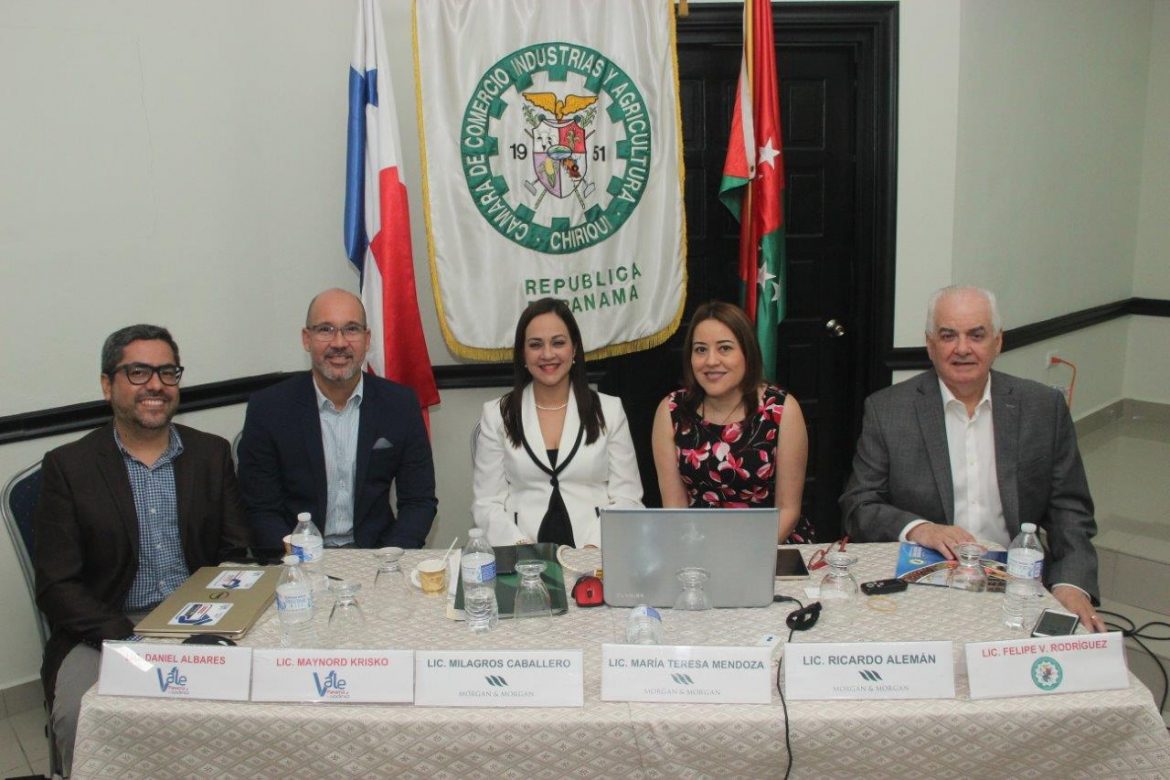Panamá reglamenta su Régimen de Propiedad Horizontal
24 de junio de 2020. En junio de 2020 se cumplen diez años de haberse expedido la Ley 31 de 18 de junio de 2010, mediante la cual se establece el Régimen de Propiedad Horizontal en Panamá. Este mismo mes, finalmente se publica y entra en vigor su respectiva reglamentación, mediante el Decreto Ejecutivo 151
- Published in Giselle Moncada, News, Real Estate_news
Morgan & Morgan presented the forum: Trends in Labor Law 2019
Morgan & Morgan, in partnership with the Chamber of Commerce, Industries and Agriculture of Chiriquí (CAMCHI), presented the forum: Trends in Labor Law 2019; a seminar organized for the business sector of the province of Chiriqui in the Republic of Panama. The topics were presented by lawyers Ricardo Aleman, Maria Teresa Mendoza and Milagros Caballero,
- Published in 2019, Ana Frago, Giselle Moncada, Labor Law_news, Maria Teresa Mendoza, Milagros Caballero, News, Ricardo Aleman
Importance of the effective collection of real mortgage loan
Giselle Moncada de Vasquez, senior associate, Morgan & Morgan The loan agreement secured by mortgage is a legal and financial concept that has undoubtedly been a pillar of world economic progress. Hence, the Supreme Court of Justice of Panama in some of its judgments has given it its importance as part of the economic public
- Published in 2018, Giselle Moncada, Press Room, Publications, Real Estate_news
Foreigners with nationalities that require an entry visa may enter Panama with visas from Korea, Japan or Singapore
Executive Decree No. 521 of August 6th, 2018 As of August 8th, 2018, foreigners of nationalities that require a visa to enter the Republic of Panama may enter with a Schengen Visa or current Residency from Korea, Japan or Singapore. Comments: By means of Executive Decree No. 521 of April 6th, 2018, any foreigner who
Foreigners with nationalities that require an entry visa may enter Panama with a Schengen Visa
By means of the Executive Decree No. 114, as of April 4th, 2018, foreigners of nationalities that require a visa to enter the Republic of Panama may enter with a Schengen Visa or current European Union Residence. Comments: By means of the Executive Decree No. 114 of April 4th, 2018, any foreigner who requires a
- Published in 2018, Albalira Montúfar, Carolina Tejada, Giselle Moncada, Immigration Law_news, Ivette Gonzalez, News, Patricia Henderson
Citizens of the Republic of India will require a Stamped Visa to enter in Panamanian territory
By means of the Executive Decree No. 113 of April 4th, 2018, the Republic of India is included within the countries that require Stamped Visa issued by Panamanian Consulate, to enter the national territory. Comments: This Executive Decree only applies to nationals of the Republic of India. Officials from the National Immigration Authority and the
- Published in 2018, Albalira Montúfar, Ana Frago, Carolina Tejada, Giselle Moncada, Immigration Law_news, News
Travel permit for minors will be online
As of April 1st, the travel permits for minors must be done only digitally. Comments: The interested party must access the website of the National Immigration Authority (migracion.gob.pa), then go to the section “Online Immigration” – option “Requests” and thus access to “Minors Permits”. Attach the following documents in PDF: Copy of Passport (Residents) or
The security trust in financing the purchase of real estate
By Giselle Moncada, Associate, Morgan & Morgan, Chiriquí office The possibility of buying real estate rests normally on the capacity of an individual or company to acquire debt, reason why credit entities play an essential role in the success of the real estate market. Lately, we have noticed that in addition to the traditional loan
- Published in Giselle Moncada, Press Room, Publications, Real Estate_news
Morgan & Morgan carries out pro bono work in Chiriqui
- Published in Ana Frago, Giselle Moncada, Lidieth Morales, News, Probono








